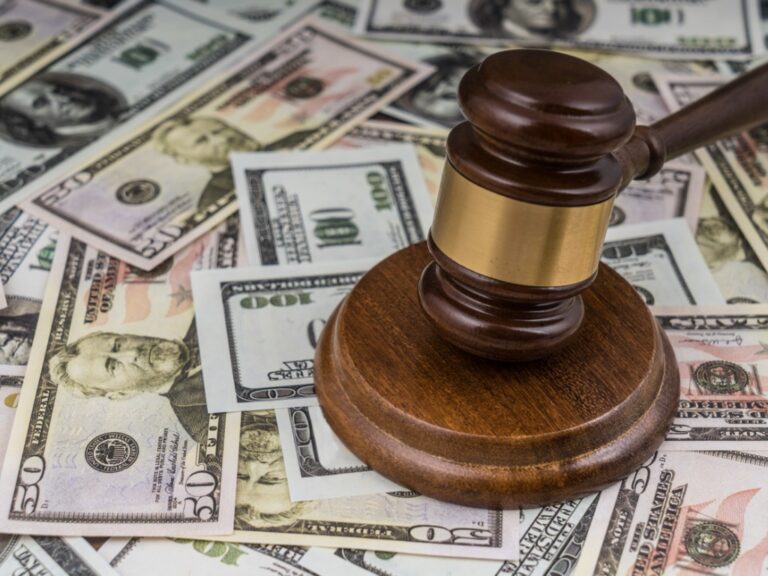Exceptional Cases Under § 285 Could Generate Higher Attorney Fees in Patent Litigation
By Lionel Lavenue and Joseph Myles
October 31, 2023

Lionel Lavenue is a partner at Finnegan. He focuses his practice on patent trial litigation and has argued over 200 patent cases. He has also led the filing of more than 125 IPR petitions and covered business method (CBM) petitions. lionel.lavenue@finnegan.com
Joseph Myles is an associate at Finnegan. He focuses on patent litigation in a range of patent venues, including district courts, the Patent Trial and Appeals Board (PTAB), and the Court of Appeals for the Federal Circuit. joseph.myles@finnegan.com
Originally published in Today’s General Counsel, November 2023
Patent assertion entities (”PAEs”: companies that buy patents to enforce them for money) can commonly use “the cost of litigation” as leverage for settlements and licensing from businesses that make products. One tool to fight back against “the cost of litigation” by PAEs is 35 U.S.C. § 285, which allows the recovery of fees and costs, where “[t]he court in exceptional cases may award reasonable attorney fees to the prevailing party.”
As clarified in Octane Fitness v. ICON Health & Fitness, an exceptional case is one that “stands out from others” based on the “strength of the party’s litigation position” or “the unreasonable manner in which the case was litigated.” Once a district court determines that a case is exceptional, the prevailing party is entitled to reasonable attorney’s fees.
Courts use the “lodestar” method to calculate a reasonable attorney’s fees award, by multiplying the number of hours reasonably spent on the litigation by a reasonable hourly rate. Both can diverge from counsel’s actual billing and requested fees, leading to a reduction in the total fee award. Avoiding reductions better compensates the client and raises the risk to the opposing party.
Reasonable Amount of Hours
To determine a reasonable number of hours, courts review billing narratives and consider whether the time spent and tasks performed were reasonable. For instance, courts refuse to award fees for duplicative work or tasks that were unnecessary to the client’s litigation. And, under Hensley v. Eckerhart, courts require counsel to exercise their “billing judgment” and omit this duplicative or unnecessary work from the fees motion.
The moving party bears the burden to demonstrate it exercised billing judgment. Courts expect the movant to either write some billable time off or explain why none of the time needed to be written off. Failing to do either may cause the court to exclude fees for some hours, and possibly reduce the total award by a flat percentage as well.
Reasonable Hourly Rate and Division of Labor
When determining a reasonable hourly rate, courts often lower an attorney’s per-hour rate if it is higher than similar attorneys charge in the geographical location where the litigation occurs. Prior cases allowing a similar or higher hourly rate are strong evidence that an attorney’s hourly rate is reasonable. Courts also accept industry reports and analytics as evidence of what attorneys in the relevant location charge.
Courts also consider which professionals worked on each task. Courts are extremely hesitant to allow a prevailing party to recover attorney rates for administrative tasks. And, courts are wary of top-heavy billing, where partners bill the majority or all of the time spent on the litigation. Courts, in most fields of litigation, frequently reduce the requested fee award if the majority of work is billed by partners.
In patent litigation, however, courts almost never reduce the fee award based on “top-heavy” billing. Instead, courts recognize the specialized nature of patent litigation and the necessity for experienced representation. This is especially true if the litigation is complex or includes multiple jurisdictions. The court is also more likely to find the top-heavy billing reasonable if the fee motion discounts the rate for partner time spent on tasks that otherwise may have been performed by an associate.
When a mix of partners and associates work on a patent case, courts consider the experience level necessary for a given task or stage of litigation. Courts are more willing to grant fees if counsel offers a logical justification for the staffing choices, even if the majority of the time is billed by partners.
When Seeking Fees, Proper Judgment Is Key
When making motions for fees under 35 U.S.C. § 285, counsel should provide specific billing records and explain what time was omitted through the counsel’s “billing judgment.” If such records contain confidential and/or privileged information, counsel has several options including: (1) filing the records under seal; (2) redacting privileged information from the records, while still leaving sufficient information for opposing counsel and the court to evaluate the scope of the work performed; and (3) offering to submit complete records to the court for in camera review to preserve privilege. However, failure to provide sufficiently detailed records or exercise “billing judgment” will cause the court to reduce the fee award.
To the extent partners bill the majority of the fees, explaining the necessity of experience to the litigation lowers the chance that the court will reduce the award. In certain situations, it may be better to preemptively discount partner time spent on tasks that may require less experience, to demonstrate to the court that counsel exercised proper “billing judgment.”
Finally, when citing prior cases as evidence of reasonable fee awards, patent counsel can highlight the distinction between specialized patent litigation and general litigation. Patent litigation case law weighs against reductions in fees for “top-heavy” billing and allows for higher hourly billing rates than might be reasonable in other fields of litigation.
Must read intelligence for general counsel
Subscribe to the Daily Updates newsletter to be at the forefront of best practices and the latest legal news.
Daily Updates
Sign up for our free daily newsletter for the latest news and business legal developments.



